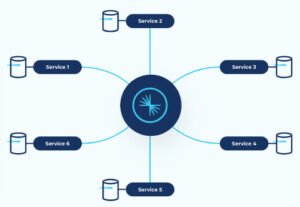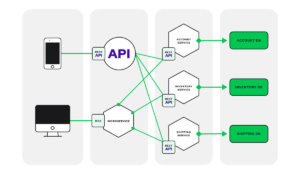Introduction
Unit testing is a crucial aspect of modern software development, ensuring that individual components of a system function as expected. In the Java ecosystem, JUnit has been the go-to framework for unit testing for many years. However, as software development practices evolve, developers are exploring new tools and approaches to enhance the effectiveness of unit testing. This article explores the basics of unit testing in Java using JUnit and introduces some advanced techniques and alternative frameworks to take your unit testing game to the next level.
The Basics: JUnit
JUnit is a widely adopted testing framework for Java, providing a simple and efficient way to write and execute unit tests. Let’s start with the basics:
Writing Your First JUnit Test
import org.junit.jupiter.api.Test;
import static org.junit.jupiter.api.Assertions.assertEquals;
public class MyTest {
@Test
public void testAddition() {
assertEquals(4, 2 + 2);
}
}
In this example, the @Test annotation marks the method as a test case, and the assertEquals method checks if the actual result is equal to the expected result. Running this test using an IDE or build tool like Maven or Gradle will provide feedback on whether the tested code behaves correctly.
Annotations in JUnit
JUnit provides various annotations to control the flow of test execution:
@BeforeAlland@AfterAll: Run once before/after all test cases in the class.@BeforeEachand@AfterEach: Run before/after each test case.
These annotations help set up and tear down resources needed for tests, ensuring a clean and consistent environment.
Beyond JUnit: Alternative Frameworks
While JUnit remains a robust and widely used framework, developers are exploring alternative options to address specific needs or to introduce new capabilities. Two notable alternatives are TestNG and Spock.
TestNG
TestNG is designed to be more powerful and flexible than JUnit. It supports parallel test execution, data-driven testing, and more sophisticated test configuration. Here’s a simple example:
import org.testng.annotations.Test;
import static org.testng.Assert.assertEquals;
public class MyTest {
@Test
public void testAddition() {
assertEquals(4, 2 + 2);
}
}
TestNG’s additional features make it suitable for complex test scenarios and large-scale test suites.
Spock
Spock is a testing and specification framework for Java and Groovy. It embraces a concise and expressive syntax inspired by Groovy, making tests more readable. Here’s an example:
class MyTest extends Specification {
def "addition test"() {
expect:
2 + 2 == 4
}
}
Spock supports data-driven testing, mocking, and other advanced features out of the box.
Advanced Techniques
Mocking with Mockito
Unit testing often involves isolating a component and mocking its dependencies. Mockito is a popular mocking framework in the Java ecosystem. Consider the following example:
import static org.mockito.Mockito.*;
public class MyTest {
@Test
public void testWithMockito() {
List<String> mockedList = mock(List.class);
when(mockedList.get(0)).thenReturn("Hello");
assertEquals("Hello", mockedList.get(0));
}
}
Mockito allows you to create mock objects, define their behavior, and verify interactions, enabling more comprehensive testing.
Parameterized Tests
JUnit and other frameworks support parameterized tests, allowing you to run the same test logic with different inputs. This reduces code duplication and enhances test coverage. Here’s a simple JUnit parameterized test:
import org.junit.jupiter.params.ParameterizedTest;
import org.junit.jupiter.params.provider.ValueSource;
import static org.junit.jupiter.api.Assertions.assertEquals;
public class MyTest {
@ParameterizedTest
@ValueSource(ints = {1, 2, 3, 4, 5})
public void testAddition(int input) {
assertEquals(input + 2, addTwo(input));
}
private int addTwo(int number) {
return number + 2;
}
}
Conclusion
Unit testing is an integral part of software development, and JUnit has been a stalwart in the Java ecosystem. However, exploring alternative frameworks and adopting advanced techniques can lead to more effective and maintainable tests. Whether you stick with JUnit or venture into TestNG, Spock, or other tools, the key is to find the right balance between simplicity and power for your specific testing needs.






There’s certainly a lot to know about this topic.
I like all the points you’ve made.